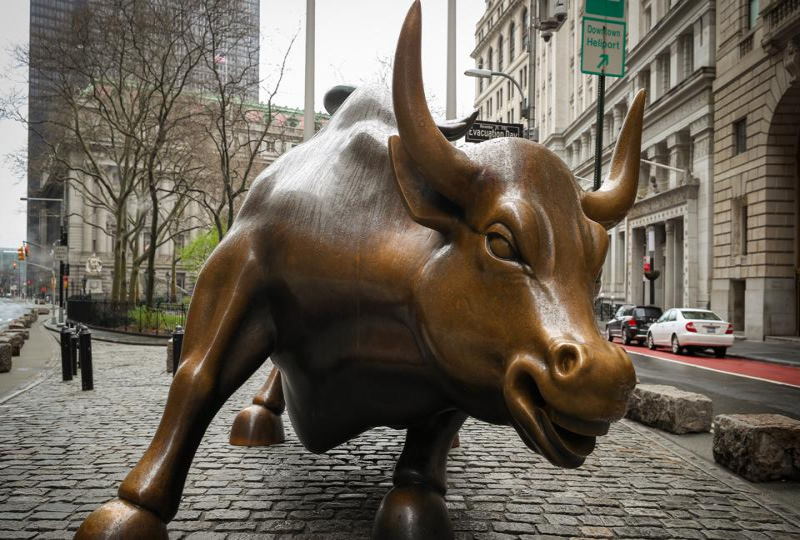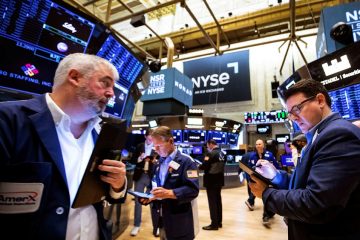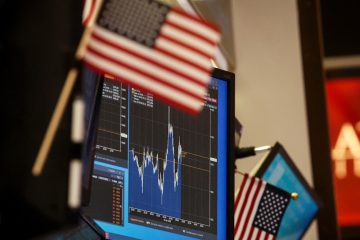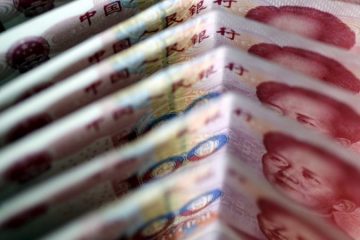An arbitrary route to stock market wealth

It is uncommon to hear star fund managers admit that their success is purely due to luck.
Some may attribute a disappointing year to timing or unforeseen circumstances, but it is clear that success is always the result of careful planning and strategic decision-making. It was definitely a victory for Heard on the Street’s columnists as we once again outperformed the top hedge-fund managers. There are valuable insights here that could greatly enhance anyone’s investment portfolio.
As an economist, Heard’s columnists decided to replicate an exercise they did in 2018. They drew inspiration from Burton Malkiel, the renowned author of the investing classic “A Random Walk Down Wall Street.” In an interesting twist, they threw 12 darts at stock-market listings, just like Malkiel had suggested using blindfolded monkeys. We participated in a competition against the fund managers who presented their top ideas at the Sohn Investment Conference in New York City last May. The stocks and the type of bet, whether long or short, were outside of our influence.
Once again, the experts were reminded of the unpredictable nature of events. Initially, there was a 22 percentage point difference between their performance and the dart tosses. This time, the increase was 48 percentage points, which was achieved through a method that requires a strong resolve.
Several of the companies, like Maui Land & Pineapple, that contributed to our impressive 80% return were completely unfamiliar to us. However, it was evident from the start that others were in a precarious situation. One software company, Semantix, experienced a significant decline of over 97% and was subsequently delisted. Another company, NGL Energy Partners, managed to survive and experienced an impressive 117% increase. Another bank, Western Alliance Bancorporation, faced challenges due to concerns in the regional banking industry last year, but managed to make a remarkable comeback. Regrettably, it was one of our two unfavorable investments and had a significant negative impact on our portfolio.
Our picks revealed an interesting trend: despite a few other winners, it was the insurer Root Inc. that single-handedly drove all our net gains. That aligns with the facts. According to a comprehensive study conducted by Hendrik Bessembinder, it was found that a significant portion of the excess returns in the U.S. stock market were generated by a relatively small number of 83 companies. Many stocks tend to have lower returns compared to risk-free investments, which is why it is more sensible to have diversified portfolios that are not designed for exceptional performance.
All of the Sohn panelist picks seemed like a wise choice initially, and a majority of them performed well over the one-year period analyzed. David Rosen, from Rubric Capital, presented Talen Energy, a nuclear-power provider that was recovering from bankruptcy and benefited from a surge in interest in this energy source, resulting in an impressive return of nearly 129%. Coming in second was Andrew Weiss from Weiss Asset Management, who selected a group of Korean companies. SK Square had an impressive total return of 81% in dollar terms. In contrast, Divya Nettimi’s choice, Sony Group, a Japanese electronics and entertainment powerhouse, experienced a 15% decline.
Heard’s columnists have no plans to enter the fund-management business, as we cannot attribute success solely to skill or luck. A few exceptionally successful years have been sufficient for mutual-fund experts like Cathie Wood or Bill Miller, although they encountered setbacks later on. Investors’ actual dollar returns tend to be worse than the stated returns of active funds, which typically fall behind simple index funds on average. This is a dirty secret of fund management. In the case of stars, there is a tendency for money to flow in when they are at their peak and then quickly disappear once their popularity declines, resulting in financial losses.
According to a study titled “The Surprising Alpha From Malkiel’s Monkey” by Towers Watson and Research Affiliates, it has been found that well-executed dart throws have the potential to outperform the market in the long term. One possible explanation is the way they were weighted, as portfolios consisting of small stocks that are regularly rebalanced have historically outperformed large indexes.
Recreating random picks on your own requires a great deal of discipline. Would you continue to support a company that is facing financial difficulties? Fortunately, that is not required. Similar to an economist’s perspective, equal-weighted index funds offer a higher level of exposure to risky outliers, with only a slight increase in volatility measures like standard deviation, compared to the more commonly used funds based on companies’ sizes.
Over the course of almost three decades, the MSCI’s equal-weighted index of U.S. stocks has managed to outperform the capitalization-weighted index by a small margin. There is potential for further gains, especially considering that it has become more affordable during the “Magnificent Seven” era. In late April, the equal-weighted index showed a price/earnings ratio that was 14% lower compared to the capitalization-weighted version.
However, even a low-cost vanilla index fund still includes those hard-to-find investments. Relying on fund managers to identify and maintain ownership of investments can lead to feelings of frustration. According to S&P Dow Jones Indices, mutual funds that perform well in one period are unlikely to continue their success. For instance, in 2020, a mere 43% of U.S. stock mutual funds outperformed their index. Out of that group, a mere 2.5% managed to sustain their efforts for the following two years.










